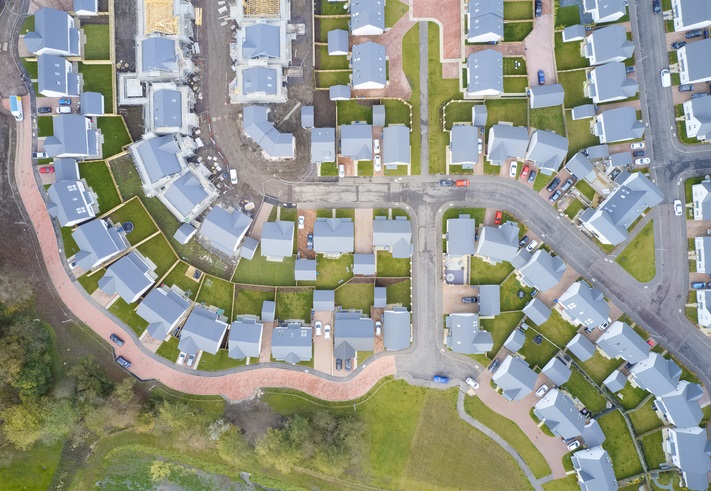ii view: Taylor Wimpey firmly focused on shareholder returns
Build completions up, net cash up, and a forecast future dividend yield of over 7%. Buy, sell or hold?
21st January 2022 15:54
by Keith Bowman from interactive investor
Build completions up, net cash up, and a forecast future dividend yield of over 7%. Buy, sell or hold?

Full-year trading update to 31 December
- UK build completions up by 47% to 14,087
- Order book of £2.6 billion
- Net cash up 16% to £837 million
- Full-year profit guidance unchanged
Chief executive Pete Redfern said:
"We have delivered an excellent performance in 2021 and expect to report full year results in line with our expectations.
"Looking ahead, we are well placed to deliver against our targets. The outlook is positive and Taylor Wimpey is particularly well positioned. We maintain a sharp focus on delivering sustainable growth, strong profitability, and increased cash returns for shareholders over the long term."
ii round-up:
Taylor Wimpey (LSE:TW.) was formed from the merger of George Wimpey and Taylor Woodrow back in 2007.
Today, it operates across 23 regional divisions across the UK along with a small Spanish housebuilding business.
For a round-up of this latest trading update, please click here.
ii view:
Taylor Wimpey sold its construction business in 2009 along with its North American operation in 2011. Today it is the third-largest UK listed housebuilder by stock market value at over £5.5 billion, behind Persimmon (LSE:PSN) and Barratt Developments (LSE:BDEV) and ahead of Berkeley Group (LSE:BKG) and Bellway (LSE:BWY).
For investors, UK inflation running at a near 30-year high puts firm pressure on the Bank of England to act and raise rates. Variable mortgage rates are rising, and higher energy prices when the new price caps are effective in April will squeeze disposal income. Supply chain challenges have also fed into higher build costs, and stretched UK government finances from the pandemic leave it little room to lower taxes.
- 10 stocks that could protect investors from inflation
- Our outlook for 2022
- Subscribe for free to the ii YouTube channel for our latest share tips and fund manager interviews
More favourably, house price increases have countered rising build costs, and last year’s fundraising to buy land looks to have been well timed. Provision for required new cladding costs under the Grenfell outcome have already been made, while the shares trade on a price-to-net asset value of under two, a discount to peers such as Persimmon. In all, given a focus on shareholder returns, and with the shares sat on an estimated future dividend yield of over 7%, attraction for income seekers remains.
Positives:
- Strong land bank
- Attractive forecast dividend yield (not guaranteed)
Negatives:
- Government ‘help to buy’ scheme previously watered down
- Rising raw material costs
The average rating of stock market analysts:
Strong buy
These articles are provided for information purposes only. Occasionally, an opinion about whether to buy or sell a specific investment may be provided by third parties. The content is not intended to be a personal recommendation to buy or sell any financial instrument or product, or to adopt any investment strategy as it is not provided based on an assessment of your investing knowledge and experience, your financial situation or your investment objectives. The value of your investments, and the income derived from them, may go down as well as up. You may not get back all the money that you invest. The investments referred to in this article may not be suitable for all investors, and if in doubt, an investor should seek advice from a qualified investment adviser.
Full performance can be found on the company or index summary page on the interactive investor website. Simply click on the company's or index name highlighted in the article.